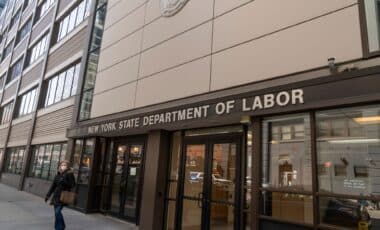Unsettling evidence of the misuse of taxpayer-funded teaching bursaries has been found by a Telegraph investigation. Some graduates have been found to have used the money for non-educational purposes, like taking out a mortgage or relocating overseas.
The Initial Teacher Training (ITT) scheme, which was introduced in 2010 by the Department for Education (DfE), aims to bolster educational standards by attracting new teachers. However, concerns have arisen over the ease with which the grants—sometimes reaching £31,000—are exploited by those who fail to meet the scheme’s original intent.
Concerns Over Misuse of Teacher Training Grants
Legal experts and trade unions have expressed concern about the lax conditions surrounding these grants, which are awarded without any obligation for recipients to remain in the country or in the teaching profession. One lawyer described the terms of the grant contracts as ‘very loose’ and comparable to simple guidance notes, leaving the system vulnerable to exploitation.
Indeed, several former teachers spoke of their experiences of colleagues abusing the system. One anonymous source revealed that a former colleague had used the grant to finance a property deposit, while another told of a teacher who had taken the money only to move to Greece without ever having taught in the UK.
On online forums, people have openly discussed how to manipulate the system, with some boasting that they have used bursary money for personal expenses, such as buying a house, rather than to cover living costs during training.
Concerns Over Teacher Training Grants and Lack of Oversight
The Association of School and College Leaders (ASCL) has raised these concerns with the DfE for several years, but was told that adding restrictions or monitoring the scheme would be too costly. The DfE has also acknowledged that it does not track how many grant recipients actually stay in the profession, despite the £196 million it allocates annually to the programme.
However, the government’s response to these concerns has been that the grants provide value for money by helping to recruit teachers in shortage subjects, yet this justification is increasingly being questioned. Despite this, the budget for the ITT programme is set to increase to £233 million next year, reflecting a £37 million rise.
Calls for Stricter Oversight Amid Growing Misuse of Teacher Training Grants
Joanna Marchong from the TaxPayers‘ Alliance has called the scheme “flagrantly abused” and said taxpayers would be outraged to learn how their money is being misused. She argued that stricter conditions should be introduced to ensure the funds are used appropriately and benefit the education sector as intended.
The issue of lax oversight is further highlighted when compared to similar schemes in other sectors. For example, NHS bursaries are means-tested and offer significantly smaller amounts, in stark contrast to the generous training grants available to aspiring teachers.
Legal experts like Pam Loch from Loch Associates Group have pointed out the potential for exploitation due to the absence of stringent requirements. The tax-free incentives offered to trainee teachers come with minimal strings attached, leading some to question whether the government should enforce more stringent conditions to ensure that recipients actually pursue careers in teaching.
Despite these concerns, the Department for Education maintains that the scheme has been successful in attracting new teachers and addressing staff shortages. A spokesperson for the DfE reaffirmed the government’s commitment to recruiting and retaining teachers, stressing that the grant system is regularly reviewed to ensure value for money.
However, given the scale of misuse, many are calling for a fundamental overhaul of the programme to restore public trust.









